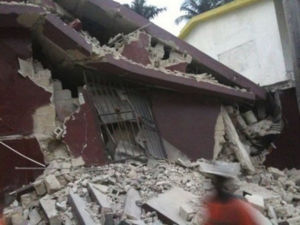Diferencia entre revisiones de «Paper:ICRA-2010-Workshop-on-modular-robots»
De WikiRobotics
(→Links) |
(→Download) |
||
| Línea 36: | Línea 36: | ||
| [http://www.iearobotics.com/downloads/2010-05-03-ICRA-Workshop/Slides-ICRA-workshop-2010-snake-USAR.odp Slides-ICRA-workshop-2010-snake-USAR.odp] | | [http://www.iearobotics.com/downloads/2010-05-03-ICRA-Workshop/Slides-ICRA-workshop-2010-snake-USAR.odp Slides-ICRA-workshop-2010-snake-USAR.odp] | ||
| Slides, in Openoffice format (ODP) | | Slides, in Openoffice format (ODP) | ||
| + | |--------- | ||
| + | | [http://www.iearobotics.com/downloads/2010-05-03-ICRA-Workshop/IEEETran.zip IEEETran.zip] | ||
| + | | IEEEtransaction latex class | ||
|} | |} | ||
Revisión del 23:53 17 may 2010
Paper reference
- Juan Gonzalez-Gomez, Javier Gonzalez-quijano, Houxiang Zhang, Mohamed Abderrahim, "Toward the sense of touch in snake modular robots for search and rescue operations". In Proc of the ICRA 2010 workshop on modular robots: State of the art. May-3rd, Anchorage, Alaska
Abstract
Snakes modular robots are good candidates for being used in Urban Search And Rescue (USAR) operations because of their flexibility, good adaptation to the terrain and small section. We propose to design and build snake robots that combine three capabilities: locomotion, climbing and grasping. The last one allows the robot to remove objects for clearing the path to the trapped people. The sense of touch is key to achieving these three capabilities. To implement it, our novel approach is based on the idea of touch rings and touch strips. In this paper some preliminary ideas are presented
Authors
- Juan González-Gómez, Javier González-Quijano, Houxiang Zhang, Mohamed Abderrahim
- Oral presentation: Juan Gonzalez-Gomez
Download
| Paper-ICRA-workshop-2010-snake-USAR.pdf | Paper (PDF) |
| Read On line in scribd | Paper On-line |
| Paper-ICRA-workshop-2010-snake-USAR.zip | Paper sources (Lyx) |
| Slides-ICRA-workshop-2010-snake-USAR.pdf | Slides, in PDF |
| Slides-ICRA-workshop-2010-snake-USAR.odp | Slides, in Openoffice format (ODP) |
| IEEETran.zip | IEEEtransaction latex class |
Log
Acknowledgments
- This research is partially supported by the HANDLE project, which has received funding from the European Community's Seventh Framework Programme (FP7/2007-2013) under grant agreement ICT 231640

